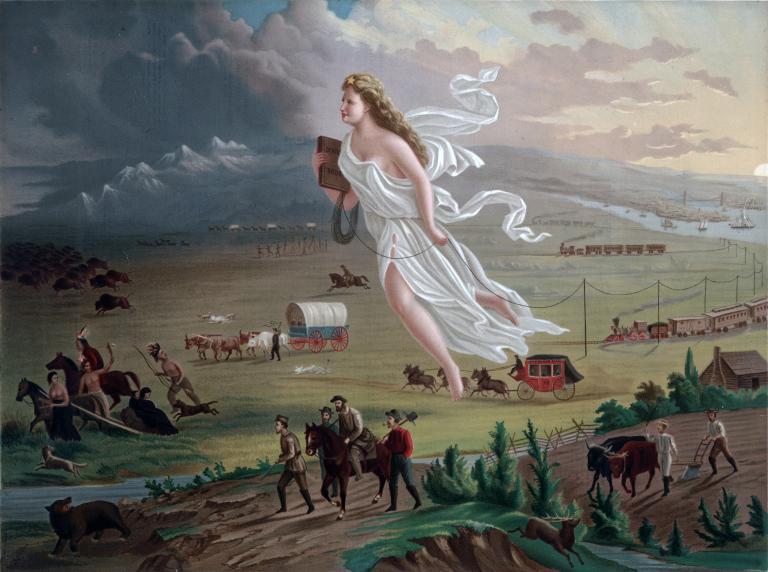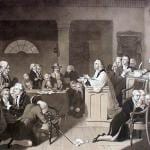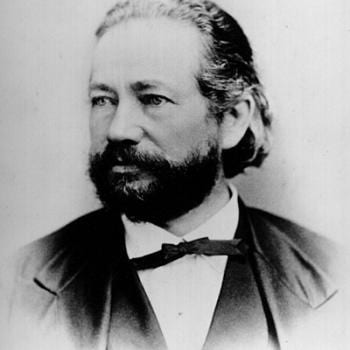
Alex Kocman (Director of Advancement and Mobilization at ABWE), writing at Founders, has issued a warning regarding the effect of critical ideologies on Christian missionary efforts. (Kocman also has a great review of Eric Mason’s Woke Church up at Founders). Kocman cautions that
Blind application of critical theory to mission yields at least two negative fruits. The first and most obvious ill result is that the hands of Western missionaries are tied when they step into new cultural contexts and find that the same oppressed/oppressor categories don’t work everywhere. Much of the current conversation over racial reconciliation, for instance, is so steeped in the present American cultural and historical moment that our insights on the issue have increasingly less relevance to our brothers and sisters elsewhere in the world dealing with other topics entirely. America’s specific black/white racial baggage isn’t a global phenomenon per se, and our brothers and sisters in the Lord—particularly those in lands where the Christian faith is illegal or close to it—rightly struggle to understand why we’re so divided.
A recent article at The Critic by James Jeffrey, “What does Black Lives Matter mean for Africa?” has made this very point by describing the class dynamics in Ethiopia, the one African country that was never colonized. Kocman continues,
But a second conceivable negative consequence, less immediately obvious, is that the same logic that exalts people group categories as supreme shares a common root with racial prejudice itself. The same Eurocentrism that produces white racism and bigotry also yields the white man’s burden; they are two sides of the same coin. And the more we let mere people group distinctions alone drive our mission, rather than the gospel driving it, the less surprised we should be when we see increasing ghettoization among those groups. If missiological thinking means defining and erecting as many sociological categories and distinctions as possible, we’ve forgotten that the point of the New Testament’s thrust towards the Gentile mission is that the gospel goes out to all indiscriminately.
More bluntly, this means that one’s bare ethnicity or socioeconomic status should never be the reason we decide to reach them or not reach them with the gospel.
All of this is true and will hopefully serve to make missionaries and the churches that send them more circumspect about what ideologies inform their mission strategies.
But I would suggest, as an addendum to Kocman’s article, that the “critical threat,” as Kocman calls it, to missions is even more dire than he presents. If missionaries (and mission organizations) imbibe the logic and conceptual framework (i.e. the worldview) of critical theories they risk not only unduly complicating their work, as Kocman predicts, but forsaking missionary work altogether. Put another way, they risk— and if the logic of critical theories is followed to its logical conclusion, necessarily will— amandoning the Great Commission (Matt. 28:16-20).
Critical Theory generally, in its contemporary form, encompasses a myriad of sub-disciplines that apply its basic tenets, assumptions, and framework to discrete areas of scholarship and social phenomena. Queer Theory, Critical Race Theory, and Critical Pedagogy are, perhaps, some of the most well-known sub-disciplines at this point, or at least the ones that are most evidently impacting public discourse and policy at present.
What is less discussed, but no less prevalent in the academy, is Postcolonial Theory (PT). But it is PT that is most relevant here because it champions the most sustained critique of foreign missions— which it conceives as a historically intricate participant in the apparatus of global white supremacy. (On “global white supremacy” (GWS) see Charles Mills’ famous The Racial Contract and his article, “Revisionist Ontologies: Theorizing White Supremacy“).
What is PT?
In their new must-read book, Cynical Theories: How Activist Scholarship Made Everything about Race, Gender, and Identity— and Why This Harms Everybody, James Lindsay and Helen Pluckrose designate PT the “first emanation of applied postmodernism,” which is their term for the “cynical theories” (i.e. critical or cultural theories) that are now ravaging our culture and political discourse.*
Whilst gender and race theories had already matured by the time postmodernism began influencing cultural theories, PT developed as a distinctly postmodern discipline. Its raison d’être is decolonization— a word you, no doubt, have heard with increasing frequency lately— a goal and focus that sets it squarely within the critical theory tradition, all of the sub-disciplines of which are dedicated to some form of liberation. PT envisions the world as constructed by systems of power which dictate knowledge (and ways of knowing).
In particular, PT takes aim at the justifying metanarratives behind the European colonial legacy (e.g. the “civilizing mission” of French domination in West Africa and the Manifest Destiny of the United States’ westward expansion). Overarching metanarratives feed into colonial discourses about “civilized” verse “barbaric” nations or peoples— which represent a sort of PT version of the oppressor/oppressed dichotomy common to all critical theories.
Before we go further down the rabbit hole that is PT, its is helpful to present a brief history of its development, primarily by tracking the key figures and major publications that formed the field.
By all accounts, PT begins with Frantz Fanon and his The Wretched of the Earth (1961). Lindsay and Pluckrose identify Fanon’s basic conception of colonialism as being “above all else, a systematic denial of the humanity of colonized people… the literal erasure of people’s identity and dignity.” Accordingly, Fanon openly advocated for violent rebellion on all fronts, cultural and otherwise.
Although Fanon’s influence cannot be overestimated, it was Edward Said (who drew heavily on Fanon and Michel Foucault) that is said to be the “originator and inspiring patron-saint of postcolonial theory and discourse,” per E. San Juan Jr. Said’s book Orientalism (1978). (For a good, general treatment of Said, see Roger Scruton’s Fools, Frauds, and Firebrands: Thinkers of the New Left (2015)). Gayatri Chakravorty Spivak and Homi K. Bhabha (who both draw on Jacques Derrida more, or as much as, Foucault) also loom large. (See Spivak’s short but seminal essay, “Can The Subaltern Speak?“, originally published in Marxism and the Interpretation of Culture (1988) which includes an extremely helpful introduction to the development of revisionist/cultural/humanist/western Marxism from Gramsci, Adorno, and Horkheimer, onward; “subaltern” is, or became, a PT term for the colonized or dominated).
Whereas Fanon predated the true advent of postmodern theory and drew mostly on Marxist-Leninist critiques of western society and capitalism and, like the Frankfurt Schoolers, Freudian theory, Said went further, truly establishing the discipline as a distinctly postmodern one. But Said never abandoned Fanon’s basic (rather Gramscian) contention that colonialism was primarily propagated through a particular mind-set.
Both the colonizers and the colonized think colonist thoughts because of the effects of the colonizer hegemony. Again, the real offense of colonialism was not the forceable confiscation of land and resources but the brainwashing of colonized peoples into white, male, European ways of knowing.
In Orientalism, Said held that “the West”, for its own benefit, constructed an us-versus-them paradigm— the West and the rest, if you will— through which they framed the world, the “them” being “the East” or the Orient. This convenient homogenization of the rest of the world as the Other allowed, Said’s theory goes, westerners to mount their crusade for world domination, all eastern countries being de facto inferior.
Said employed Foucault’s idea of power-knowledge (see e.g. Discipline and Punish and The Archeology of Knowledge) to explain the function and purpose of the West-East binary and establish hegemonic narratives (i.e. means of control) in colonized countries. The postmodern assumptions of PT mean that it views knowledge as a construct of power. Drawing on Said, postcolonial theorists maintain that the “West constructs itself in opposition to the East,” characterizing the latter as irrational and uncivilized and the former as the exact opposite, the civilizing force for progress.
Foucault’s basic thesis was that the way people talk correlates to how they think and constructs knowledge. Knowledge is literally power. Dominant groups control the discourse (which basically encompasses everything for Foucault), the ways of speaking, and thereby control knowledge, which affords them power. Said’s “Orientalism” was a discourse, the discourse (or mind-set) whereby westerners “othered” easterners (the colonized). “The Orient” was simply a construct produced by the colonists as part of the colonist discourse to set themselves up as superior— a move for which an antithesis, an Other is required— and acquire power-knowledge over those they sought to dominate.
Deconstruction and Reconstruction
All of this leads back to the raison d’être of PT: decolonization. That is, to combat the hegemony of the West by deconstruction, and then, as we will see, reconstruction. As Lindsay and Pluckrose note, much of PT scholarship amounts to simply reading some version Said’s “Orientalism” into western texts. Which is to say, postcolonial theorists read social or cultural power imbalances into western literature, and any interactions between the dominant and subaltern groups (especially in foreign policy)— see this article from 1992 on the discourse of geopolitics, or Gerald Horne, “Race from Power: U.S. Foreign Policy and the General Crisis of ‘White Supremacy’” (making a fascinating, if mind-bogglingly historically selective, case for white supremacy’s influence throughout the history of American foreign policy).
One of PT’s approaches to combating the legacy of colonialism— one they think as alive as ever— is to combat the narratives and discourses (and knowledge generation) of the colonizers by elevating indigenous and subaltern perspectives, narratives, and histories which have allegedly been erased from cultural memory by colonist bids for power via othering or Orientalizing them. In practice this looks something like the 1619 Project. Rewriting (political) histories and origin stories to challenge dominant myths (i.e. justifications for power) and reject colonial (white, male) power-knowledge claims (and ways of knowing).
Postcolonial theorists rightly recognize the human element of recording history, whereby cultural memory is fostered. This entails non-neutrality and oftentimes certain omissions and mistakes. But as Carl Trueman argues in Histories and Fallacies: Problems Faced in the Writing of History (2010), though absolute neutrality is impossible for the historian, objectivity as to the factual basis of one’s opinion and angle on the narrative is not; indeed, it is essential to any stable conception of history. But PT so emphasizes the impossibility of pure neutrality— coupled with its Foucauldian theory of power-knowledge, an oppressor/oppressed dichotomy, and blatantly radical political agenda— that it abandons objectivity altogether, and purposefully so, as matter of course.
For example, Dalia Gebrial writes in Decolonizing the University (2018) (which sports a cover design that looks like something out of 2020, not 2018),
The public’s sense of what history is remains influenced by positivist tendencies, whereby the role of the historian is simply to ‘reveal’ facts about pasts that are worth revealing, in a process removed from power [i.e. powerblind]. This epistemological insistence on history as a positivist endeavor functions as a useful tool of coloniality in the institution, as it effaces the power relations that underpin what the ‘production of history’ has thus far looked like.
In other words, history is written by the victors and is, therefore, always a power-grabbing lie, and the victors in this scenario are white, male colonizers. History, like law, is just one element of the hegemonic apparatus that justifies the power of the dominant class.
But PT “is not merely deconstruction,” say Lindsay and Pluckrose, “but a call to reconstruction.” Spivak’s influence on the discipline is apparent in this regard. Subalterns (colonized people) lack access to speech and, therefore, knowledge and power because colonists intentionally or otherwise placed barriers to the entry of the dominated into dominant discourses. Spivak turned PT toward combating this epistemic violence, that is, when the speech and knowledge (and ways of knowing) of the subaltern are marginalized as illegitimate. Epistemic exploitation is a near synonym of this, one that is frequently invoked today when either 1) oppressed persons (usually BBPOC’s) are asked to provide proof of discrimination, or 2) corroborate their appeals to lived experience. Such requests are, of course, racist. To combat epistemic violence, Spivak advocated for the subversive embrace of stereotypes imposed on marginalized people as the Other whilst inverting the embedded hierarchies within the socially constructed binary— what amounts to an embrace of identity politics by exaggerating perceived binary group identities, i.e. oppressor v. oppressed.
One facet of this subversive activity is to, as mentioned above, tell subversive, identity-laden narratives that combat the established, dominant historical discourses but nevertheless emphasize and exaggerate the social (power-filled) binaries for rhetorical and political effect.
Caveats, Sort of
Of course, as is the case with almost any academic discipline, PT does not get everything absolutely wrong, as already noted regarding the writing of history. There were plenty of scientifically dubious, historically questionable, downright inhuman narratives propagated during the 19th century to justify the less-than-wholesome activities of many colonial ventures. References to “inferior or degenerate races” during the mid-to-late 19th century and early 20th century are not difficult to find.
Theories of racial hierarchy abounded, especially amongst elites— see my recent review of the film Mr. Jones for a reminder that elites and intellectuals are almost always at the forefront of half-baked theories that justify gruesome behavior by the fellow members of their class; forget not also who it was that touted the racist (and ableist, to borrow a critical theory term) eugenics of Margaret Sanger in the mid-20th century, later to be admiringly adopted and perfected by Hitler and Goebbels.
But Lindsay and Pluckrose rightly discern that the blatantly racist attitudes of some 19th century colonialist apologists are not much encountered today, except maybe on fringe message boards like 4Chan or amongst the remnant of America’s real white supremacists, all few thousand of which were represented at Charlottesville a few years ago— a distasteful but hardly influential bunch. “Nevertheless,” lament Lindsay and Pluckrose, “these attitudes are cited in postcolonial Theory as though their past existence produced an indelible imprint upon how people discuss and view issues today. Postcolonial Theory establishes much of its claim to importance by assuming there must be permanent problems that have been handed down to us through language constructed centuries ago.”
Whilst the western, white norms (per the Smithsonian) of individualism, moral universalism, and the like are, to the PT’er tools of domination, colonial myths, it is actually those values and, yes, narratives, that led to the abandonment of the admirably detestable colonial mindset of many people during the 19th and 20th centuries. But a faithful PT’er would argue just the opposite. Rather, the perpetuation of the myths just cited have enabled continued domination of the colonizer class and allowed its power to remain obscured and, essentially, go underground— ironically, this argument, e.g. that racism and the like have changed form over time and simply better concealed themselves, is the exact sort of narrative labeled preposterous by those who decry the post-war cultural Marxism narrative that itself is recounted in books like Marxism and the Interpretation of Culture cited above.
Decolonize Everything!
Indeed, this fantasy of PT’s is the sole justification for the decolonization initiatives today. Everything must be decolonized, they say. It’s not just narratives about colonialism that are the problem but attitudes, norms, and practices from colonialism (i.e. perceived superiority complexes of white Europeans over and against everyone else). We must be free of the enduring colonist domination over our language, narrative, discourses, norms… over our power. Colonialism endures where cultural domination endures.
The most recognizable form of this impulse is in curriculum (the site of mind-set formation), especially at the college level. The “Why is My Curriculum White?” movement was one, relatively mild, manifestation of this. That campaign by the U.K. National Union of Students sought to diminish “reliance” on white authors and replace them with BBPOC sources. The practicality, utility, and desirability of this can be debate with varying success depending on the discipline. But what is more concerning is those efforts to not only switch out reading material (based on the skin color of the author, mind you) but to elevate alternative ways of knowing or “knowledges.” (See my recent treatment of “Black positionality” as represented in Black Lives Matter’s statement of belief here).
These types of efforts, for which subaltern authors/scholars are necessary, are closer to the central PT project and, frankly, more insidious in that they, from the word ‘go’, undermine conceptions of stable, objective truth. The concomitant to these types of changes in the curriculum is not simply to offer elective alternatives but to explicitly and directly critique and demonize (problematize and deconstruct, as they say) anything characterized as Western— a battle that was fought and lost in the humanities years ago.
Everything from the Rhoades Must Fall movement (which had to do with decolonizing university spaces from oppressive representations of the colonial legacy) to curriculum alterations, the point is to liberate non-western, non-white, subaltern ways of inquiry from Eurocentric epistemology and to transform the university from a site of privileged knowledge production into one of emancipatory reform. As with all activist scholarship informed by critical theories, the emancipatory aims require, at least at the outset, discrimination unto equity (i.e. toward oppressors)— which, of course, is totally acceptable according to the antiracist educator Ibram X. Kendi— until a certain amorphous equilibrium is reached. “Local” or subjugated epistemologies must be elevated in a way that makes up for lost time and corrects the historical wrongs of exclusion and suppression.
One can tell which knowledge, sources, and methodologies need to be discarded for the sake of equity by examining the values embedded therein, the identity of the authors, and the results. Anything espousing rationality, neutrality, objectivity, or universal truth at any stage, is red flagged (and usually cast into the fiery furnace). Hence, per Lindsay and Pluckrose, “This leads to a belief that rigor and completeness come not from good methodology, skepticism, and evidence, but from identity-based ‘standpoints’ and multiple ‘ways of knowing.'”
PT and Christian Theology
Unfortunately, and too our chagrin, theology departments on Christian college and seminary campuses have not been immune to the rapidly expanding influence of PT. Calls for decolonizing seminary curriculum and our theology are becoming more frequent. (On this question see Neil Shenvi’s thoughtful essay, “Should We ‘De-colonize our Theology’?“)
In some circles, initiatives to decolonize theological curriculums are in their second phase (per PT). That is, they not only seek to insert “diverse” perspectives (i.e. diverse authors) into the curriculum but also question the very framing of the discipline itself, and, in some cases, the basis of key doctrines of historical orthodoxy.
As Nelson Maldonado-Torres has said regarding philosophy,
Any serious effort to decolonize philosophy cannot be satisfied with simply adding new areas to an existing arrangement of power/knowledge, leaving the Eurocentric norms that define the field as a whole in place, or reproducing such norms themselves. For example, when engaging in non-European philosophies it is important to avoid reproducing problematic conceptions of time, space and subjectivity that are embedded in the Eurocentric definition of European philosophy and its many avatars.
You cannot play the game with the colonizer’s tools! In fact, you cannot even play the same game. PT is a Kobayashi Maru maneuver. The rules of the game must change such that the game becomes something new altogether.
The same reasoning (to use the word loosely) is now being applied to theology. Everything from basic systematic categories to theological language is being questioned by the “cutting-edge” scholars who, for whatever reason, still mingle in “conservative” evangelical circles. It is now not uncommon to hear calls for American evangelicals to return to the purity of Eastern Christianity for the sake of sanitizing their theology of Western influences. If this is not the influence of Said’s “Orientalism” then I do not know what is. Chalcedonian Christology is now questioned because of its central place in western Christianity.
PT and Christian Missions
And this brings us, finally, back to Christian missions. The need to decolonize theology produces a subsequent need to decolonize the way the Gospel is conceived, articulated, and propagated. Postcolonial theorists will point to the (real and/or perceived) role that Christian missionaries played in colonization. Walter Rodney’s How Europe Underdeveloped Africa (1972) is an oft-cited source on the subject. Rodney, a Marxist historian, critical pedagogists, and contemporary of Paulo Freire (the father of critical pedagogy), makes missionaries not merely incidental to colonization but intricate thereto.
The Christian missionaries were much part of the colonizing forces as were the explorers, traders, and soldiers, There may be room for arguing whether in a given colony the missionaries brought other colonialist forces or vice versa, but there is no doubting the fact that missionaries were agents of colonialism in the practical sense whether or not they saw themselves in that light.
On the one hand, Christians did, at times, provide less-than-tenable explanations and justifications for colonial ambitions, some of them substantive, others pragmatic. But as with PT in general, these past ills will be emphasized and painted as current by Christians influenced by PT.
Within the discourse of western Christianity, the West-East dichotomy is articulated in different ways, such as through Christendom-Islamic World or Christian-Confucian dichotomies. The Christianity that was spread throughout colonized countries, especially in Africa, is considered, by postcolonial theorists, as a key part of the white, colonist hegemony. It was responsible, especially because of its role in founding schools— and especially given the relatively integrated nature of Christianity and the colonizing nations at the time— for upending indigenous ways of knowing and spiritual beliefs. That is, it destroyed local culture and cultural knowledge and, therefore, indigenous power. Western Christianity is also highly connected to the norms and values of the West that are derided in critical theory disciplines (e.g. individualism, universalism, and objectivity). This is even more the case once the old, tired narrative of antithesis between scientific inquiry and Christianity (especially in the medieval period) is extinguished. The point is that Christianity does not have clean hands. It was a key player in colonization, maybe even one of the worst because it had such a penchant for upending cultural norms and belief systems and did so under the guise of charity and humanitarianism.
But even the dynamics of present-day Christian humanitarian efforts are problematized and criticized. PT’ers will lament, at the outset, that such mission work is predicated on a halves-halve-nots dichotomy that emphasizes Western prosperity which itself was built on the backs of the subaltern. Missions inherently compound the narrative of the West and the rest: that the rest is in need of saving from their helplessly barbaric ways. Further, humanitarianism is labeled a myth used to excuse the indoctrination of local peoples with Western Christian thoughts.
Some Christians might think they can sidestep criticism by adopting a ‘just preach the Gospel’ model of evangelism and missions. Not so fast. Not only is there Biblical and historical precedent for engaging in humanitarian aspects of mission work, but the abandonment of ministry that addresses material needs will fail to defuse the situation from a PT perspective.
For postcolonial theorists, Christianity, especially of the Western variety, is itself a source of oppression, and all the more so when certain sects possess an above average evangelistic fervor. Indeed, like critical pedagogists, the religious and intellectual (and educational) side of foreign missions represents the most dangerous contribution of missionaries to the establishment of the colonial hegemony abroad. That the indoctrination (evangelism) is one directional— and that evangelism is often attached to material aid is further problematic to postcolonialists because they see it as a sort of cruel bribery structure— implicitly privileges Western ways of knowing and believing over non-Western ones.
In an article criticizing the dynamics between South Korean Christian missionaries and North Koreans (on the receiving end), Shin Ji Kang of James Madison University notes that colonialism was/is not only about military and economic dominance but the superiority of an entire social structure and society. Religion plays a huge, exploitative part in this: it colonizes the consciousness.
religion is an entire cultural system, and it orients an entire worldview—it is a wholly organizing orientation to all of reality, with accompanying ethics that appear uniquely realistic to adherents. Thus, especially in spreading religious frameworks, colonial powers not only authorize sovereignty over the physical dimensions of colonized peoples, they also exert control over the social, religious, intellectual, and emotional dimensions.
Christian missionaries, despite some having good intentions, clearly perpetrated these devastating colonial and neocolonial frameworks throughout much of the globe. The evidence of the power and authority of the colonial power structures went hand in hand with the evident superiority that Christian people supposedly possess over non-Christians.
To people like Kang, this is “cultural genocide.” And Since “the cultural imposition of the missionaries continues today, even among the more sensitive and liberal-minded missionaries of our own time,” it is necessary that “postcolonial perspectives must be considered critically and extensively in order to prevent many Christian missionaries from practicing the same abuses of the past.”
Just like certain evangelical seminary professors are willing to admit their own “racism” (according to the new prejudice plus power definition that assigns complicity and, therefore, guilt to all whites), Christian scholars who have been influenced by PT are willing to admit their own colonizer status. In an eye-opening passage from a contribution to Evangelical Postcolonial Conversations (2014), Gene Green, professor emeritus of New Testament at Wheaton College and Dean of Trinity International University, laments his own complicity in the colonization of Native Americans:
I was the colonist; I am the colonist. The land where I live was taken under an ill-signed treaty in 1829, and the people who lived here, the Potawatomi, were gathered and forcibly removed from this area under the Indian Removal Act of 1830. When Black Hawk resisted this ethnic cleansing, President Andrew Jackson sent General Winfield Scott through this area to suppress the rebellion. Afterward immigration to the west of Chicago spiked and new communities were founded such as the one where I now live and teach. We are established on this land because of colonialism. We are the colonists.
These are the (self-flagellating) “educators” raising up the next generation of pastors, theologians, and missionaries.
Conclusion
To a postcolonial theorist, Christian missions are a critical threat. Already stated is the fact that PT envisions the ills of colonialism to be enduring and current. Its legacy will be felt until everything is sufficiently decolonized. One need not be a full-blown, card-carrying postcolonial theorist to nevertheless fall into some of the ideas originating therewith.
It is a short distance between embracing some of the basic assumptions of Critical Race Theory— the most prevalent manifestation of contemporary critical theory in our context— such as the belief that the white, male, cisheteronormative hegemony has constructed all of our society’s norms, narratives, and institutions to perpetuate their own dominance to some of the applications (or extensions) of the same ideas presented by PT. If white supremacy is a global problem then the basic insights of CRT are applicable, to some extent globally.
Plus, missionaries, in particular, must grapple with the legacy of colonialism. This requires honest but careful nuance to do. Disciplines like PT, armed with the unitary explanation for the world inherent in all critical theories, all too willingly present themselves as an easy fix— just as CRT does in the American domestic context.
Would-be missionaries will be, and are already being, told at Christian universities and seminaries (at least those bitten by the PT bug) that they need to approach their vocation with lament for the ever-present-past and “cultural humility” (the new Wokespeak for divestiture of whiteness). As Rod Dreher recently pointed out, Christian institutions of learning should think that Christianity is a superior form of belief, ‘way of knowing,’ ethic, and lifestyle. That’s ostensibly why they’re Christian and not something else. But such a posture will increasingly be assaulted with accusations of arrogance and ignorance by the purveyors of critical ideologies; the manifestation of a colonist mind.
The implications of this kind of thinking for Christian theology and mission work has been sketched here. If postcolonial theory is fully imbibed by those training for missionary service in fulfillment of the Great Commission then they will in short order abandon said service entirely, forsaking it as the work of the oppressor. At least they will abandon anything recognizably evangelistic in their missionary effort. Instead they will kowtow to the Woke orthodoxy by entertaining the alternative ways of knowing of the Other and rejecting the “arrogance” of a “power-knowledge” that claims to know the Way, the Truth, and the Life, and possess the only, narrow Way to eternal beatitude, bliss, and perfect communion with God. If the grim picture I’ve painted comes to fruition we can expect less and less people to volunteer for this suicide mission. If we allow the logic and assumptions of PT to further infect Christian institutions this may very well be the case.
Christianity, without postcolonial modifications, is, indeed, a dangerous and exclusive ideology. And missionaries are a ‘critical’ threat to the Other under the PT view. Potential missionaries need to decide now, at the outset, whether they can stomach promulgating such a thing around the globe to people culturally unlike them. Their love for the Gospel and those they take the Gospel to will be interpreted as a bid for power under the guise of charity. Like soldiers returning from the Vietnam War, faithful missionaries may become objects and derision in their own land for their life-long dedication to such an oppressive cause abroad. It may soon be the case that when new missionaries commit to sacrificing their livelihoods, families, and prospects to take the Gospel to dangerous, inhospitable places they also commit to never being able to comfortably return home. Is this really the price Christian churches and educational institutions are willing to pay to be woke?
Update: Some quotes from Jemar Tisby’s bestselling The Color of Compromise came to mind after writing this. I tracked them down. The quotes below serve to illustrate the proximity of certain elements of PT thinking to average evangelicals. PT has been effectively laundered, to borrow Peter Boghossian’s idea; transported into popular Christian books. In chapter 2 of Tisby’s book (which is now frequently recommended by well-meaning evangelical pastors) entitled, “Making Race in the Colonial Era,” Tisby recounts many of the horrors of the transatlantic slave trade and, specifically, how (in his estimation) Christianity was complicit therein, thereby compromising the Christian message. This is, of course, (generally speaking) a plausible, defensible point. In many cases it was true. Many Christians did compromise in the face of widespread, socially acceptable evil (just as they do today). One of the many problems with Tisby’s presentation, however, is that he extends those same attitudes to the present day, as if they remain current and substantively, if not formally, unaltered. In the passage quoted below there is also a fair amount of conjecture as to the motives and real effects of the narratives of seventeenth and eighteenth century Christian he (selectively, though, of course, all histories have to be) chooses to highlight. The generalities are rather sweeping. (It is also unclear at times whether he is talking about the American context or the European colonial context writ large. The nature of the transatlantic slave trade somewhat lends itself to this oscillation but it still remains confusing in the book).
Even though European missionaries sought to share Christianity with indigenous peoples and Africans, social, political, and economic equality was not part of their plan. Missionaries carefully crafted messages that maintained the social and economic status quo. They truncated the gospel message by failing to confront slavery, and in doing so they reinforced its grip on society.
Christianity served as a force to hep construct racial categories in the colonial period. A corrupt message that saw no contradiction between the brutalities of bondage and good news of salvation became the norm. European missionaries tried to calm the slave owners’ fears of rebellion by spreading a version of Christianity that emphasized spiritual deliverance, not immediate liberation. Instead of highlighting the dignity of all human beings, European missionaries told Africans that Christianity should make them more obedient and loyal to their earthly masters.
All of this feeds into Tisby’s large narrative about Christian complicity in racism over the last 400 years. As you can see, Tisby envisions a highly active and hegemonic role for Christian missionaries. Their job was to quite the emancipatory imaginations of the oppressed. Throughout the book, and this is one of its biggest flaws, Tisby characterizes certain doctrines, like the separateness of the church or emphasis on spiritual rather than material liberation, as convenient modification of the true Gospel, conjured up by colonists for the sake of crowd control. At times, Tisby makes his case, but not all the way through. Most often the proof of such is rather dubious. But this is the necessity of extending the evil attitudes of colonialism to the present: Christians today that genuinely, and certainly not for the sake of muting the passions of the enslaved, hold to many of the doctrines he criticizes as slaver innovations are then implicated (if unwittingly) in the crimes of their ancestors; they perpetuate the hegemony.
*Lindsay and Pluckrose emphasize the postmodern elements of contemporary critical theories and downplay the neo-Marxist ones. This is part of their, obviously defensible, framing of the issue. I would opt for calling neo-Marxism—especially as taken up by the Frankfurt Schoolers— the base to postmodernism’s superstructure. The latter, in my opinion fills in the gaps for critical theory at a conceptual but largely linguistic level, just as Freudianism filled in the historical gaps for the revisionism of Horkheimer and Adorno and their use of the early Marx. Ideas are not static, and neither are schools of thought. I would draw much more continuity between Frankfurt and contemporary manifestations of critical theory. Marcuse and his compatriots still loom large and their spirit can be felt in current social movements. Obviously, the influence of Foucault and Derrida et al. is not minor. My only contention is that critical theory could not be what it is today without the fundamental work of Frankfurt which set up the basic structure of thought, reproduced Marxist conflict theory, and further developed Gramsci’s hegemony theory.
All of that being said, a recent post from Lindsay offers a fuller explanation of his theory about the relationship between Marxism and contemporary critical theories (apparently, he and Pluckrose disagree on this front). That recent post gets closer to how I see the dynamic. I would almost fully endorse it.
Image: American Progress (1872) by John Gast (Wikimedia Commons)












